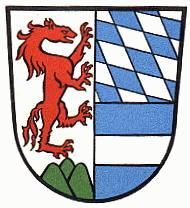Vilshofen (kreis): Difference between revisions
Knorrepoes (talk | contribs) m (Text replace - "'''Origin/meaning :'''<br/>" to "====Origin/meaning====") |
Knorrepoes (talk | contribs) m (Text replace - "|width="15%"|50 px|right |} " to "|width="15%"|50 px|right |}<seo title="Wappen, Gemeindewappen" /> ") |
||
| Line 3: | Line 3: | ||
|width="70%" align="center" |'''Heraldry of the World<br/>Civic heraldry of [[Germany]] - [[Deutsche Wappen|Deutsche Wappen (Gemeindewappen/Kreiswappen)]]''' | |width="70%" align="center" |'''Heraldry of the World<br/>Civic heraldry of [[Germany]] - [[Deutsche Wappen|Deutsche Wappen (Gemeindewappen/Kreiswappen)]]''' | ||
|width="15%"|[[File:Germany.jpg|50 px|right]] | |width="15%"|[[File:Germany.jpg|50 px|right]] | ||
|} | |}<seo title="Wappen, Gemeindewappen" /> | ||
'''VILSHOFEN (VOF)''' | '''VILSHOFEN (VOF)''' | ||
Revision as of 19:25, 5 November 2012
| Heraldry of the World Civic heraldry of Germany - Deutsche Wappen (Gemeindewappen/Kreiswappen) |
VILSHOFEN (VOF)
State : Bayern
Incorporated into : 1973 Passau
Origin/meaning
The arms were granted on February 13, 1957.
The panther is derived from the arms of the Counts of Kraiburg and Ortenburg, and symbolises the influence of the counts in the district. In 1206 they founded the city of Vilshofen. In the 13th and 14th century most of their possessions were acquired by the Wittelsbach family, Dukes of Bayern. Their arms are shown in the upper left quarter.
The lower left quarter shows the arms of the Counts of Hals, who, until the 14th century, ruled the area around Osterhofen. The panther stands on a small hill, derived from the arms of the Niederalteich Abbey, and symbolises the possessions of the many monasteries in the area.
Literature : Stadler, K. : Deutsche Wappen - Bundesrepublik Deutschland. Angelsachsen Verlag, 1964-1971, 8 volumes.

